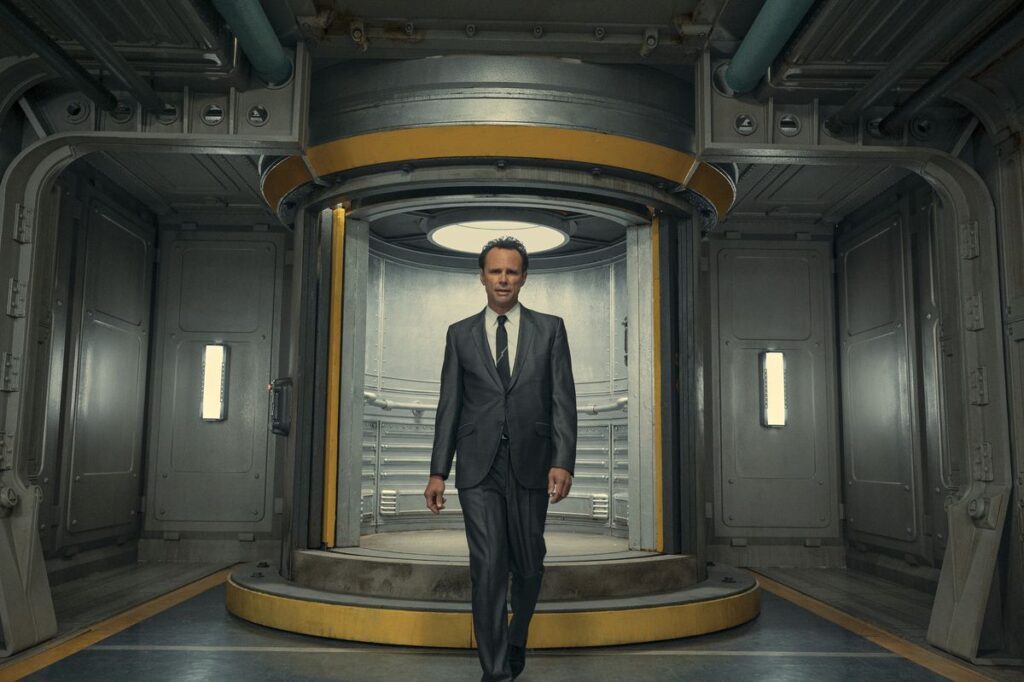Fallout, the new TV drama based on the post-apocalyptic game series, premiered earlier this week on Prime Video. And instead of directly adapting any of the games (like HBO’s The Last of Us) or creating a separate continuity inspired by the series (à la Paramount Plus’ Halo), Fallout takes a wholly different approach: telling an original story set explicitly within the continuity of the games.
Which is what makes the reveal during the eighth episode of Fallout such a bombshell, pun intended. After more than 26 years, Prime Video’s new series might have offered an answer to one of, if not the most persistent question of Fallout’s universe: Who dropped the bombs first?
[Ed. note: This post contains spoilers for the end of Fallout season 1.]
Photo: JoJo Whilden/Prime Video
Fallout takes place in an alternate universe set approximately 219 years after a nuclear war between the U.S. and China has destroyed civilization and irradiated the planet’s surface. Prior to the nuclear war that decimated the Earth, Walton Goggins’ Ghoul character was an American actor named Cooper Howard who at one time worked as the spokesman for Vault-Tec, a prewar defense contractor responsible for building the vast network of underground shelters seen throughout the series. Through flashbacks, we learn that Cooper’s wife, Barb (Frances Turner), worked as an executive at Vault-Tec.
When Cooper begins to feel uneasy about his reputation as “the pitchman for the end of the world,” he begins to suspect that his wife is withholding something from him with regard for the true nature and scope of Vault-Tec’s intentions for the Vaults. Desperate to assuage his concerns, Cooper bugs his wife’s Pip-Boy — a portable, wrist-mounted computer designed to integrate with Vault-Tec’s systems — in order to learn the truth. In the final flashback in the season finale of Fallout, Cooper offers Barb a ride to work and, while she’s away at a meeting, waits in her office in order to listen in on what’s being discussed.
It’s at this point that Cooper learns the horrible truth: Not only is Vault-Tec conspiring to perform illicit human experiments within the Vaults in the event of a nuclear apocalypse, but the company is willing to go so far as to drop the bombs itself in order to ensure that its investment pays off.
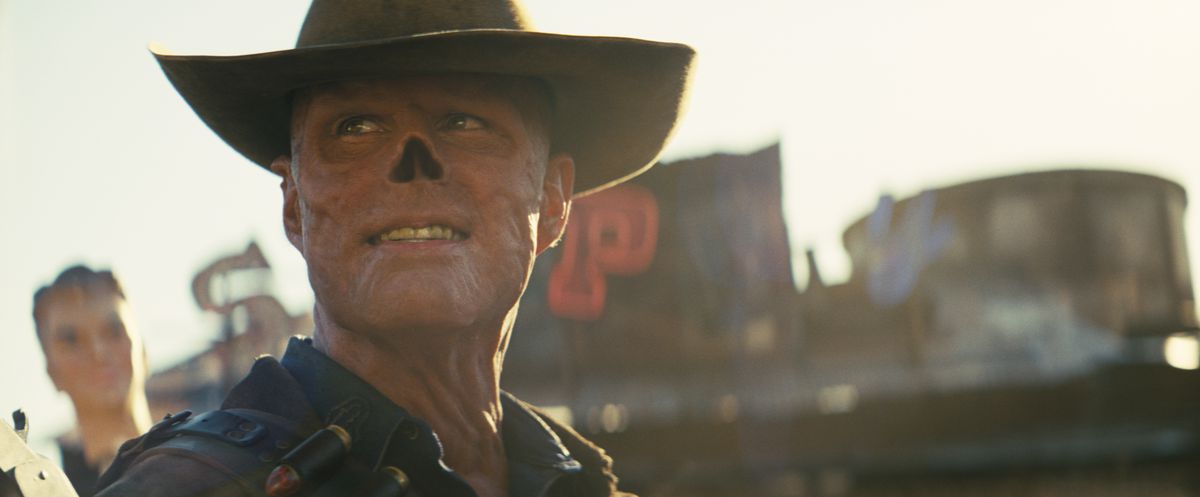
Image: Prime Video
“A nuclear event would be a tragedy,” Barb tells the room full of executives, “but also an opportunity. Perhaps the greatest opportunity in history, because when we are the only ones left, there will be no one left to fight. A true monopoly. This is our chance to make war obsolete, because in our current societal configuration, which took shape without intentional guidance, we have friction, we have conflict, and we have war […] and war never changes.”
This is, by far, the biggest narrative swing the Fallout TV series attempts to pull off: offering what appears to be a definitive, canonical answer to a question that fans have been furiously debating for nearly three decades. As Cooper’s memory leads us to believe, Vault-Tec, not the United States or China, dropped the bombs and started the war, end of story. However, fans of the games will know that the answer to this question is much more complicated than it seems.
When it comes to the topic of who instigated the apocalypse in the Fallout universe, there are many theories — most of which can be summed up in three major arguments. The first is that on Oct. 23, 2077, China fired its nuclear arsenal at the United States, prompting the U.S. to immediately retaliate. The second prevailing theory among fans is that neither the U.S. nor China was responsible for starting the war, but instead a rogue state or third party (including, though not limited to, Vault-Tec) hoping to advance its own unknown agenda at the expense of humanity’s survival. The third most popular argument is not so much an answer as it is rejoinder to the question itself: No one knows who started the war, and ultimately it doesn’t matter.
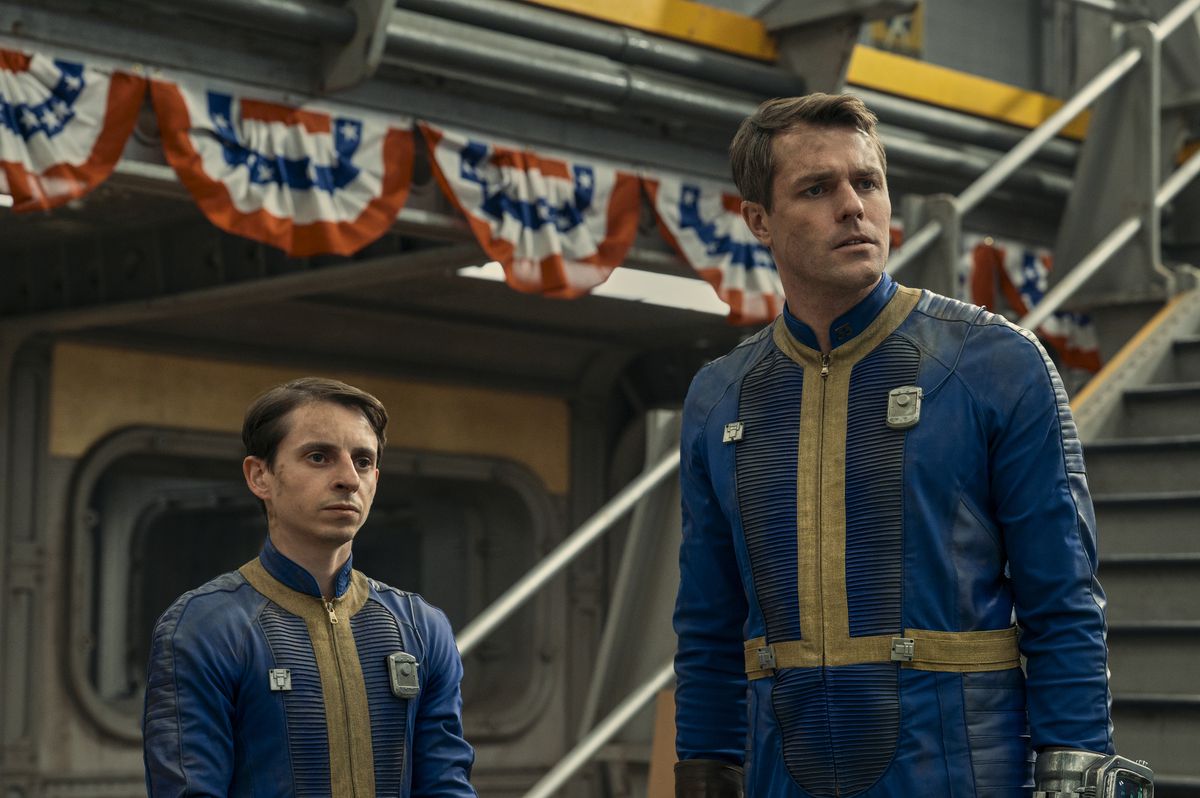
Photo: JoJo Whilden/Prime Video
This isn’t just a question that only Fallout fans debate, though, but one that several designers who have worked on the Fallout games have given their own differing views on over the years.
In a conversation posted on the Discord server for Modiphius Entertainment, the publisher of the officially licensed Fallout tabletop role-playing game, Fallout programmer and designer Jesse Heinig responded with his take on who dropped the bombs first. “Personally I think who started the war is kind of a less interesting question than ‘what policy and agenda failures created conditions that drove a global nuclear war’. Like, I feel (and I suspect [Fallout creator Tim Cain] feels the same) that I’m less interested in who fired the first missile, than in what kind of jingoism, revanchism, imperialism, and bigotry created the climate in which people in power felt that destroying civilization was their best action compared to all other alternatives.”
Last year, a 90-minute interview between Fallout YouTuber TKs-Mantis and Cain made headlines when Cain offhandedly mentioned it was China who bombed the U.S. first, but in retaliation for the United States’ development of biological weapons, particularly the Forced Evolutionary Virus, or FEV (which resulted in the super mutants encountered throughout the series). However, Cain quickly walked it back with a joke after the debate among fans was brought up, playfully identifying the culprit as an unknown rogue state.
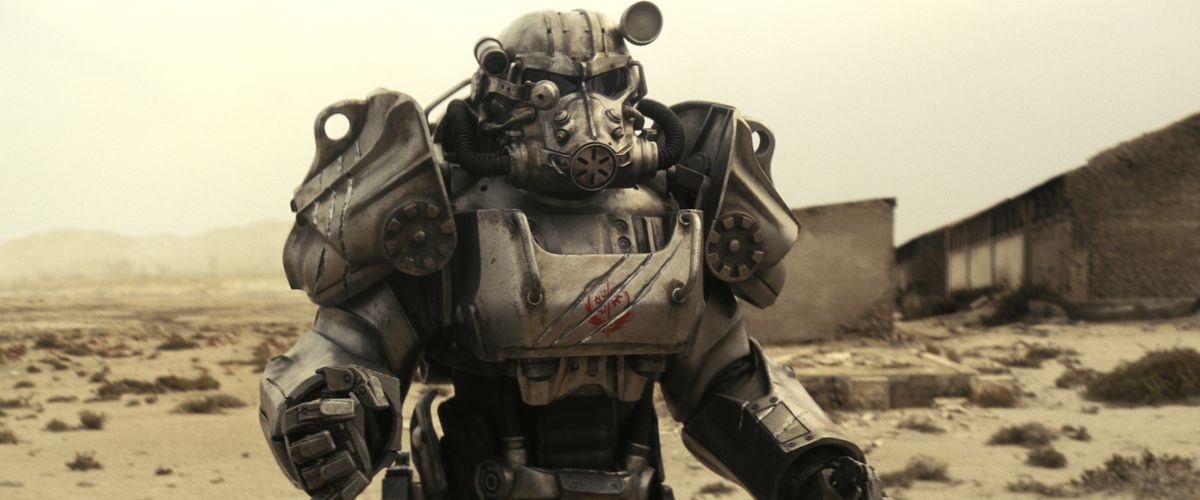
Image: Prime Video
Fans who adhere to the theory that China bombed the U.S. first cite several in-game documents and terminals from Fallout 2 and Fallout: New Vegas, which Cain’s comments seem to corroborate. Most, if not all, of these in-game documents, however, are conveyed from the perspective of the U.S., leaving room for the possibility that the United States may have been manipulated into a preemptive strike, thereby sparking the war itself.
It’s also worth noting that Cain, despite being one of the principal creators behind the Fallout series — and in fact was the sole developer of the first game for the initial six months of its creation — has not been involved with the Fallout franchise since 1998, when he left Interplay Entertainment in the middle of Fallout 2’s production. While it seems evident from his comments that Cain personally intended for China to be the one responsible for dropping the bomb first, that this detail is so inconclusively conveyed in the games themselves — combined with Cain’s own attempt to retract his explanation — suggests that the answer was left intentionally vague and open to interpretation. As Heinig would put it: The question of who dropped the bombs isn’t nearly as important, or interesting, as the question of why the bombs were dropped in the first place.
So does the Fallout TV series settle the debate once and for all? Again, it’s complicated.
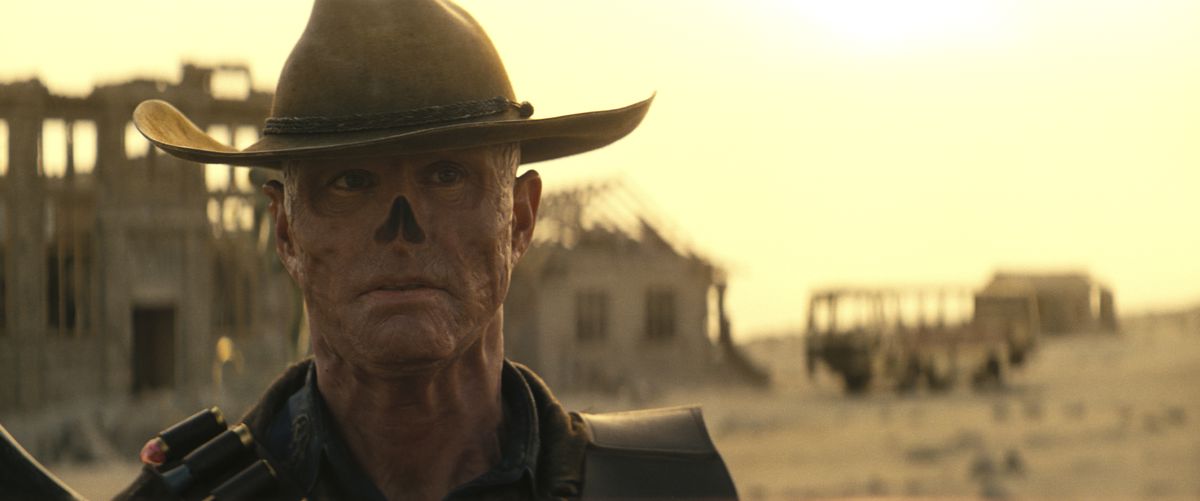
Image: Prime Video
It’s important to note the context of the scene in which Cooper eavesdrops on Barb’s meeting at Vault-Tec in relation to what else we’ve learned throughout the series. In the opening flashback of Fallout’s first episode, we see Cooper performing at a children’s birthday party, and we learn that Cooper is divorced, having been forced to take this job in order to pay alimony (or, at least, that’s what the gossips say). The flashback culminates with Cooper and his daughter Janey witnessing the bombs drop on Los Angeles, with Cooper racing atop a white horse with Janey in tow toward an unknown destination — presumably a Vault-Tec Vault.
There’s a conspicuous gap of time between the events seen in the flashback of the season finale and the opening flashback of Fallout’s first episode. We don’t know what has transpired in the world of Fallout between those two scenes, only that Cooper’s relationship with Barb has deteriorated to the point of divorce and that he no longer works for Vault-Tec. There’s also the question of why Barb, who presumably has intimate knowledge of Vault-Tec’s plan to drop the bombs, would allow her daughter to go off to spend time with her ex-husband on the day she would’ve known the world was going to be destroyed — especially when she had already openly expressed that she would do anything to protect her loved ones from the imminent threat of nuclear war!
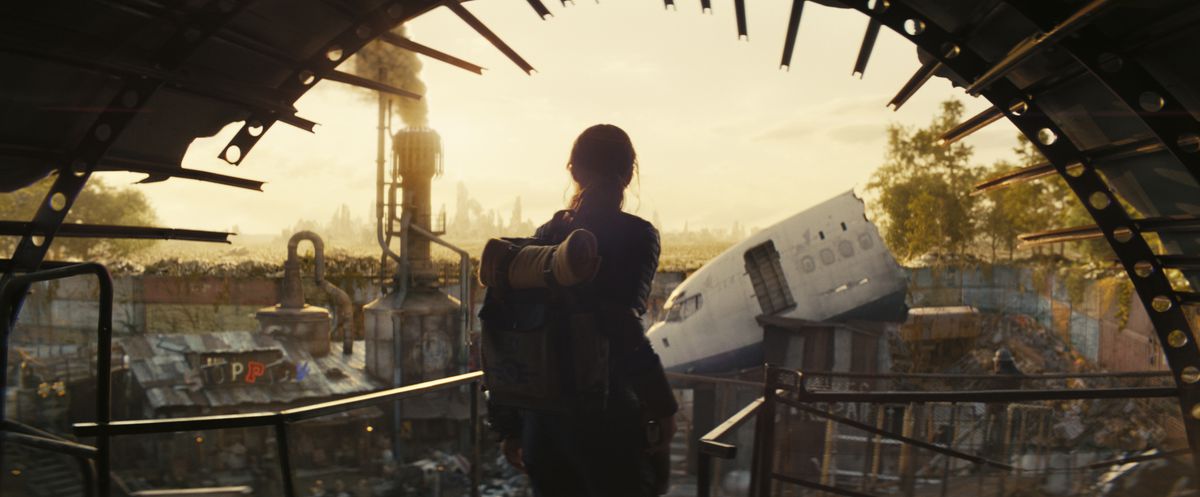
Image: Prime Video
While the flashback of Barb declaring Vault-Tec’s intention to instigate nuclear war between the U.S. and China is damning, it is not incontrovertible proof that Vault-Tec itself ultimately dropped the bombs. Instead, the true thrust at the heart of that scene is not that Vault-Tec started the war, but rather a glimpse at the true breadth of Vault-Tec’s depravity and contempt for human life, a fact evident to anyone who’s ever played a Fallout game but a revelation to any viewer who hasn’t. That’s not even mentioning that, as revealed in Fallout 2 and Fallout 4, several Vaults had not been completed by the time the bombs dropped on Oct. 23, 2077, which would suggest that either Vault-Tec made a decision to cut its losses and drop the bombs, or that its plans were preempted by the U.S., China, or an unknown third party beating Vault-Tec to the punch.
So what does all this mean about the canonical implications of Fallout’s big reveal? Ultimately, while a dramatic and consequential moment within the show itself, the reveal of Vault-Tec’s intent to incite the nuclear apocalypse alone doesn’t alter the status quo of what’s already been firmly established through the games. It’s sure to reignite spirited debate among fans, especially with regard to how successfully the Fallout series expands and iterates on the continuity of the games, but the prevailing sentiment surrounding the debate itself is fundamentally unchanged. No matter who killed the world, whether it was the U.S., China, Vault-Tec, or someone else, the fact remains that in the Fallout universe, war never changes, even when the fate of humanity itself is at stake.
All eight episodes of Fallout season 1 are now streaming on Prime Video.

